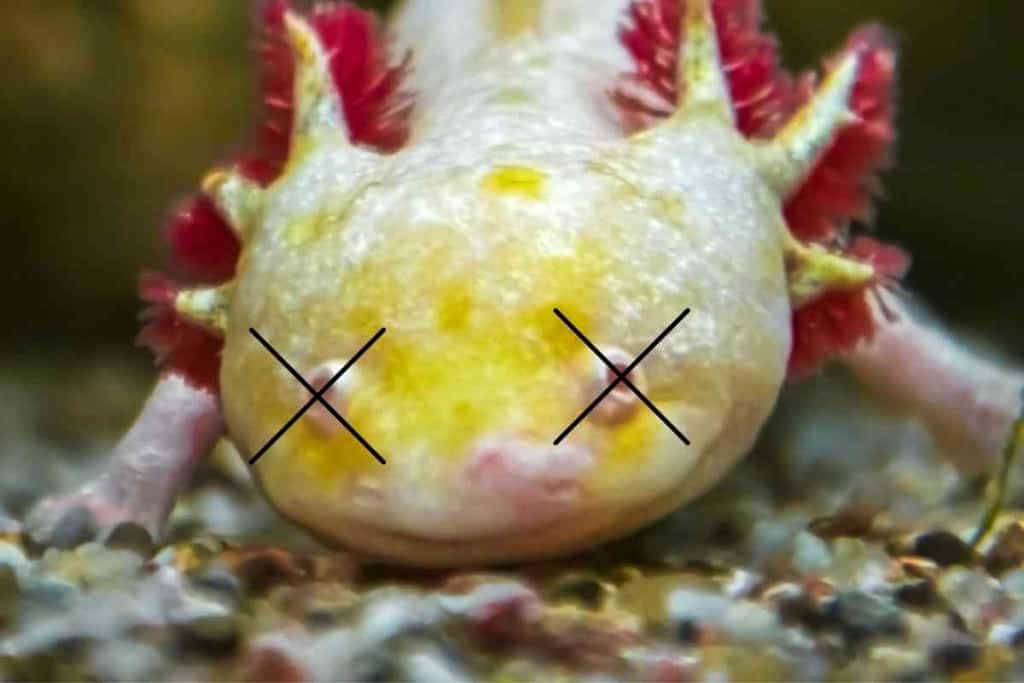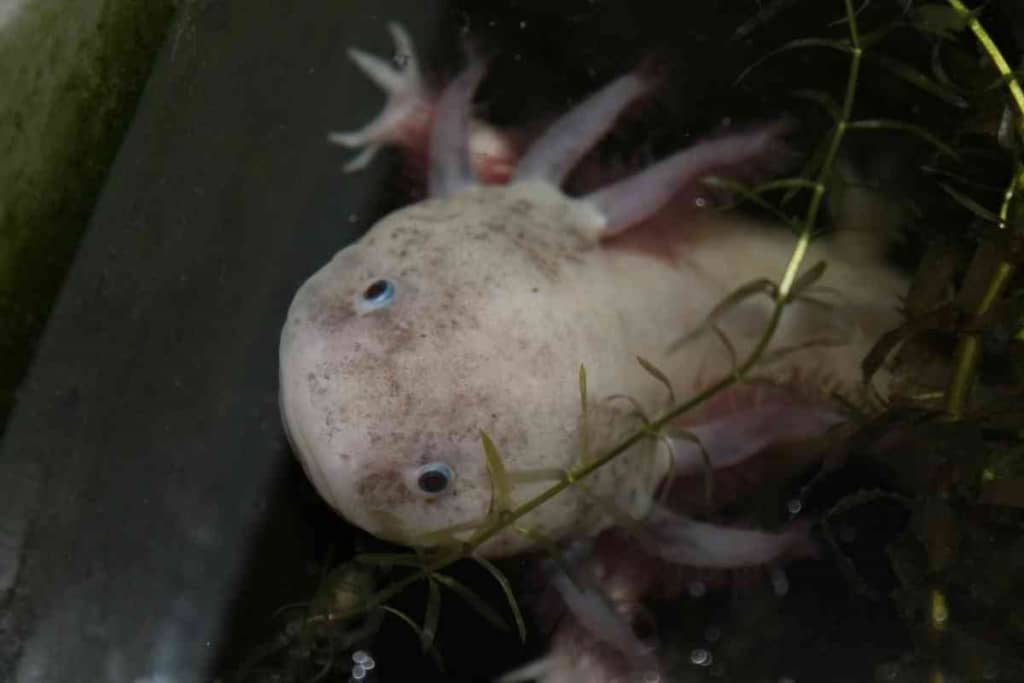Do Axolotls Die Easily? 10 Common Threats To Your Axolotl’s Longevity
Axolotls are one of the rarest pets people own. These creatures are exquisite and known to tickle the curiosity of pet lovers who often wonder, do axolotls die easily?

Do axolotls die easily?
Typically, Axolotls live for a decade and a half, but in captivity, they can live up to two decades with proper care. Keep in mind that axolotls are sensitive creatures that will perish suddenly if they are made to live in poor conditions and aren’t provided with a proper diet.
According to familypet.com, axolotls will get sick or die suddenly if they encounter poor quality water, parasites, impaction, infected wounds, poor diet, or an aggressive tank partner.
To give you a better insight and ensure your pet axolotl lives a long, healthy life by your side, we will go into further detail about the issues that cause axolotl death and how to prevent them.
What is the Typical Life Expectancy for Axolotls?
It is estimated that Axolotls living in the wild live an average of 10 to 15 years. However, pet axolotls, if provided with the optimum living conditions and proper care, can live till the ripe age of 20.
The biggest contributing factor to a long lifespan is the quality of water your axolotl lives in. If you provide them with clean, filtered water and do routine water changes, this will help ensure your pet stays healthy and doesn’t contract any diseases or infections.
Another way to promote a long lifespan is by feeding them a nutritious diet. A well-balanced diet will help support their immune system and prevent any deficiencies that could make them sick.
Can Axolotls Die Suddenly?
One of the most common questions people ask about axolotls is whether or not they can die suddenly. Unfortunately, the answer is yes.
There are a number of reasons and factors that affect how long your pet will be able to survive. Keeping these in mind and ensuring you provide the best care possible will help to reduce the risk of your axolotl’s death.
The following are some of the main reasons why axolotls can die suddenly:
1. Poor Quality Water
One of the most common reasons why axolotls perish is because they are living in water that is of poor quality. This could be due to a number of factors, such as a lack of filtration, too much chemical build-up, or not enough water changes.
If you want to ensure your axolotl lives a long and healthy life, it is important to provide them with clean, filtered water with the appropriate ph and do routine water changes. Don’t forget to clean your filters regularly, too. This will help to remove any toxins, bacteria, and impurities that could make them sick.
2. Parasites
Another common reason why axolotls die is because of parasites. These tiny creatures can cause a wide range of problems for your pet, including malnutrition, weight loss, and anemia.
If you suspect your axolotl has parasites, it is important to take them to the vet for a checkup. The vet will be able to prescribe the appropriate medication to treat the condition and help prevent any further complications.
3. Impaction
Impaction is another common health problem that can affect axolotls. This occurs when your pet ingests something they are unable to digest, which then gets stuck in their digestive tract.
Some of the most common things that can cause impaction include gravel, sand, shells, and rocks. If you suspect your axolotl is impacted, it is important to take them to the vet as soon as possible for treatment.
4. Infected Wounds
Axolotls are known to be very active creatures and often explore their environment by climbing on rocks or other objects. This can sometimes lead to them sustaining cuts or scrapes, which can become infected if not treated properly.
If you notice your axolotl has an open wound, it is important to clean it with distilled water and apply a topical antibiotic ointment. If the wound does not heal within a few days or seems to be getting worse, it is important to take them to the vet for further treatment.
5. Poor Diet
A poor diet is another common cause of death in axolotls. These creatures require a high-protein diet in order to stay healthy and grow properly.
If you are not providing your axolotl with enough food or the right types of food, this can lead to malnutrition and a host of other health problems. It is vital you reach out to a veterinarian or an experienced owner to ensure you are feeding your pet a well-balanced diet.
6. Aggressive Tank Mates
Another factor that can contribute to early death in axolotls is having aggressive tank mates. These creatures are typically very docile and do not do well when housed with other animals that may pick on them or hurt them.
If you notice your axolotl is being bullied or injured by another creature in their tank, it is important to remove the aggressor immediately. Additionally, you may need to provide your axolotl with a hiding place, such as a cave or rocks, so they can feel safe and secure.
7. Incorrect Temperature
Axolotls are very sensitive to changes in temperature and can only live in water that is between 64-72 degrees Fahrenheit. If the water in their tank gets too hot or cold, this can cause them a lot of stress which can lead to illness or death.
It is important to use a reliable thermometer to monitor the temperature of your axolotl’s tank and make sure it stays within the correct range. Additionally, you may need to invest in an aquarium heater or chiller to help regulate the temperature if it fluctuates too much.
8. Lack of Oxygen
Another common reason why axolotls die is that they are not getting enough oxygen. This can often be due to a lack of aeration in their tank which prevents the water from circulating properly.
If you notice your axolotl gasping for air at the surface of their tank, this is a sign they are not getting enough oxygen. It is important to add an air stone or other form of aeration to their tank to help improve the water quality and circulation.
9. Old Age
Unfortunately, axolotls do not have a very long lifespan and typically only live for 5-10 years in captivity. While there are some steps you can take to help your axolotl live a longer and healthier life, eventually, they will reach the end of their natural lifespan.
If your axolotl is starting to show signs of old age, such as lethargy, weight loss, and skin degeneration, it is important to make sure they are comfortable and have all the necessary care they need. Additionally, you may want to consider euthanasia if your pet is suffering and there is no hope for recovery.
10. Predation
In the wild, axolotls are often preyed upon by a variety of animals, such as fish, birds, and mammals. While this is not typically a problem in captivity, it can still happen if an animal is introduced into their tank.
If you notice your axolotl is missing or has been injured, it is important to check the tank for any signs of predation. Additionally, you may need to take steps to secure their tank so no other animals can get in and harm them.
How to Ensure Your Axolotl Has a Long Life

1. Get Them Checked Out By a Vet
If you are concerned about your axolotl’s health or think they may be sick, the best thing you can do is take them to a vet for a checkup. A thorough check up will help diagnose any problems early on and provide you with the necessary treatment.
2. Provide Them with a Proper Diet
It is well understood that axolotls require a high-protein diet in order to stay healthy and grow properly. If you are not sure what to feed your pet, it is important to consult with a veterinarian or experienced axolotl owner.
3. Keep Their Tank Clean
A clean tank is essential for keeping your axolotl healthy and free from disease. It is important to perform regular water changes and clean the tank with an aquarium-safe cleaner.
4. Monitor the Temperature of Their Tank
As mentioned earlier, axolotls are very sensitive to temperature changes and can only live in water that is between 64-72 degrees Fahrenheit. It is important to use a reliable thermometer to monitor the temperature of your axolotl’s tank and make sure it stays within the correct range.
5. Provide Them with a Hideout
Axolotls feel safest when they have a place to hide away from the rest of their tank mates. This can be something as simple as a cave or rocks that they can hide under.
6. Don’t Overcrowd Their Tank
Overcrowding can stress out your axolotl and lead to health problems, so it is important to provide them with ample space. A good rule of thumb is to give them about 10 gallons of space for every inch of length.
7. Euthanize Them If They Are Suffering
If your axolotl is old and suffering, it may be time to consider euthanasia. This is a difficult decision to make, but sometimes it is the best thing for your pet.
8. Get Them a Companion
Axolotls are social creatures and do best when they have another axolotl to keep them company. If you are considering getting another axolotl, it is important to make sure they are compatible in size and temperament.
9. Join an Axolotl Forum or Group
There are many online forums and groups dedicated to axolotls where you can ask questions, share photos and connect with other owners. This is a great resource for information and support.
